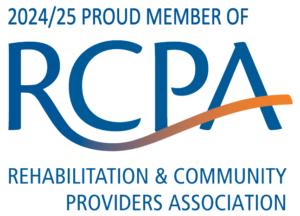Family School Partnership
The mission of the Family School Partnership program is to enhance educational outcomes for students with disabilities, especially spina bifida and related neurological impairments, by increasing families’ abilities to work as equal partners with school personnel.

Working Together
It is often difficult for parents to navigate through the special education process and ensure that the proper supports are in place to accommodate the needs of their child. The Family School Partnership emphasizes collaboration between parents and families in order to successfully educate the child with spina bifida.
The primary focus is to equip parents with the information they need in order to advocate for the diverse needs of their child. The program serves families and school district personnel from preschool through graduation.
It may seem like an exaggeration to claim that spina bifida is the most complicated disability compatible with life, but for this condition it is an understatement. While the physical aspects of spina bifida are often visible to others–such as the use of a wheelchair, crutches, or bracing–the cognitive limitations are often “hidden.” Oftentimes individuals compensate so well for these limitations that those supporting them in the school environment may not suspect a learning problem but rather a problem with motivation. The key to assisting is recognizing that there is a problem and working to determine where the problem lies.
Our Services
Services are provided at no cost to the families and include, but are not limited to, the following:
- In-service training to school personnel
- Support and guidance related to adult services
- Family Consultations
- Pre-school Planning
- Individual Plan Recommendations
- Family Workshops
- Student Observations
- Resource Fairs
- Transition to Adulthood Planning
- Identifying Problems
It is often recommended that children with spina bifida and hydrocephalus receive a neuropsychological evaluation in order to evaluate difficulties with attention, perceptual motor processes, reasoning and problem solving, organization and sequencing, and memory. If the evaluation conducted by the school and neuropsychologist suggest the individual is in need of specially designed instruction, the neuropsychological evaluation will help determine what problems should be addressed in the child’s Individualized Education Plan (IEP).
Frequently Asked Questions
Absolutely, if you would feel more comfortable having someone from the association attend your meeting with you we will be happy to accommodate you.
There are many ways to interpret the word advocate. Often when you tell the school that you are bringing an advocate they become defensive. Although we will help you work with the school we are not there to point fingers and blame, we are there to help you work with them. We will help you with interpreting the law and knowing what your rights are, but for the most part we are more of a silent partner at your meeting.
Absolutely, we are happy to come and provide training and information to the teachers in the school about the unique needs of a child with spina bifida.


